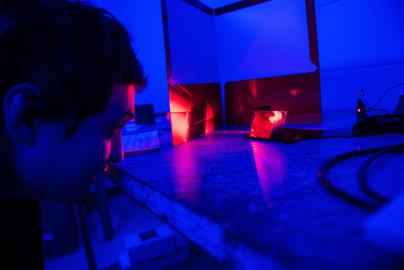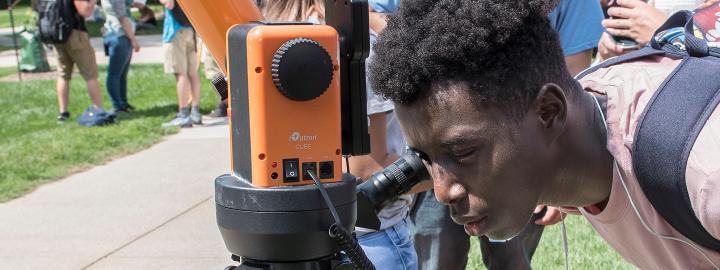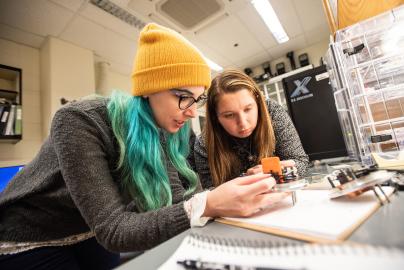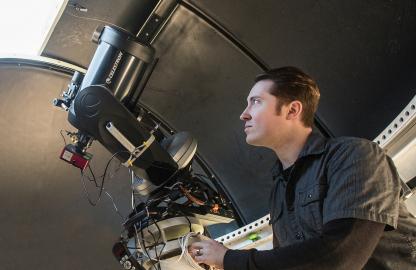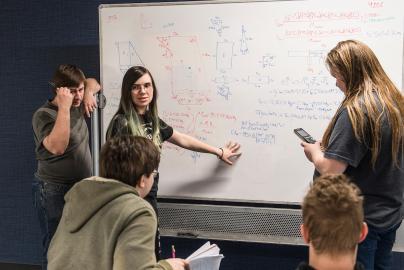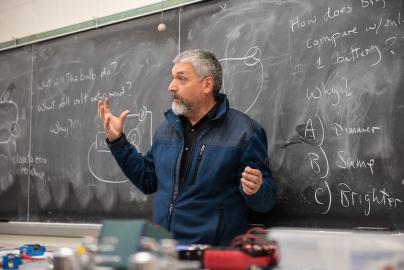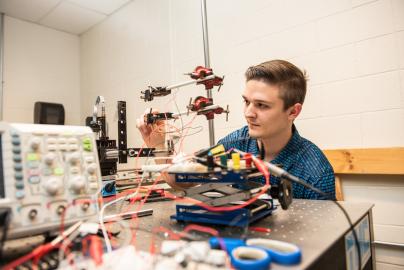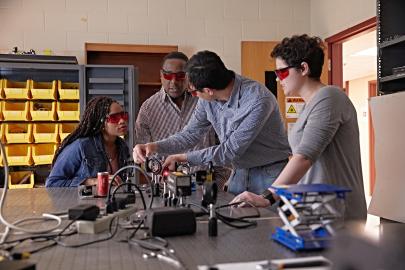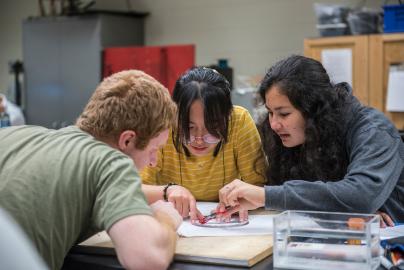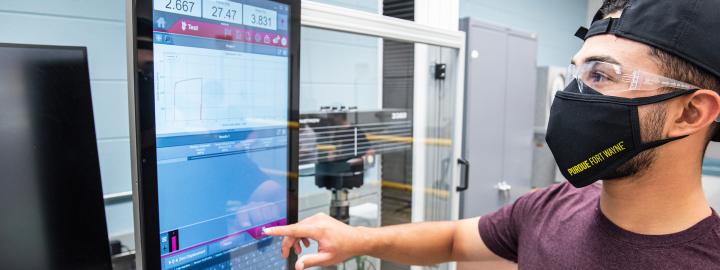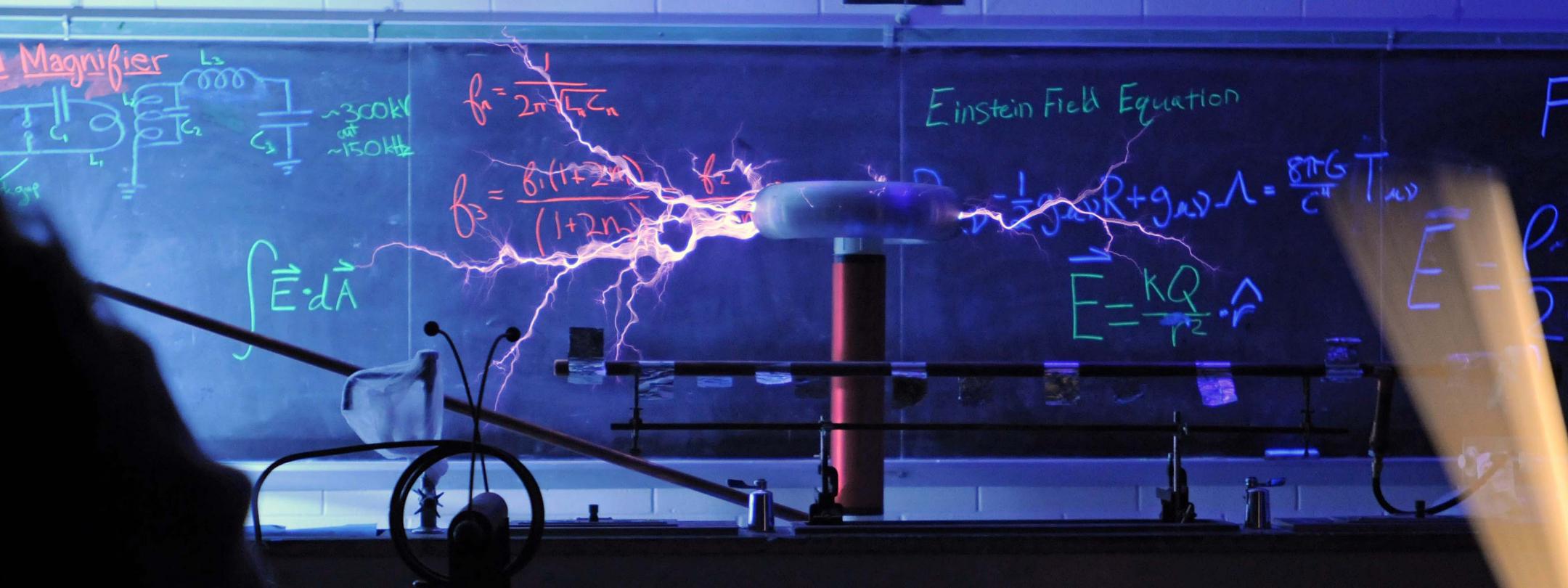
Physics Programs
Physics—where innovation and understanding become a unified front.
Did you know that physicists developed the underlying technology for cell phones, computers, and tablets? They also created the image sensors used in cameras, magnetic storage in hard drives, the MRI—the list goes on, but you get the picture.
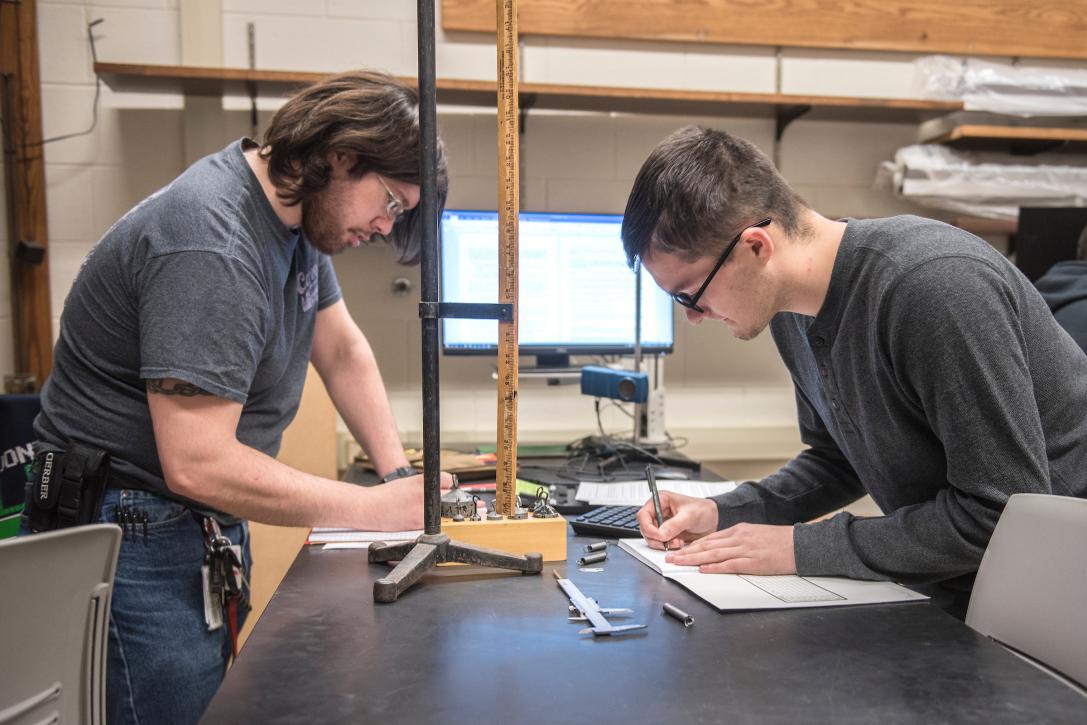
Applied Physics (M.S.)
Advance your physics knowledge, sharpen your computational skills, develop strength in building quantitative models and utilization of scientific tools in applied physics, and prepare for a professional career or doctoral studies.

Program
Highlights
Program Highlights
- Development of analytical-thinking and research skills
- Experience with circuit design, field-programmable gate arrays (FPGAs), and microcontrollers for instrumentation development
- Understanding of the importance of experimentation and data analysis
- Support from the Mastodon community
- A prestigious Purdue degree
career and salary data
How far will you go?
General labor market and salary data are provided by Lightcast via O*NET and may not represent the outcomes experienced by Purdue Fort Wayne graduates in these programs. Purdue Fort Wayne graduates in these programs may earn salaries substantially different or less than the amounts listed. Salary and employment outcomes vary by geographic area, previous work experience, education, and opportunities for employment that are outside Purdue Fort Wayne’s control. Purdue Fort Wayne does not guarantee employment placement, salary level, or career advancement.
Student Learning Outcomes
Upon completion of this degree, students will be able to demonstrate the following learning outcomes:
- Reason about physically significant problems conceptually and mathematically
- Solve complex physical problems using sophisticated mathematical techniques
- Interpret mathematical solutions conceptually and physically
- Investigate physical phenomena using multiple approaches
- Use computation and computer modeling to investigate physical phenomena and solve physical problems
- Communicate in appropriate scientific media and forms
- Apply physics content knowledge to industrial problems
- Data Scientist
- Design Engineer
- Doctor
- Lawyer
- Materials Scientist
- Medical Physicist
- Optical or Laser Engineer
- Physicist
- Systems Engineer
- Teacher
- Technical Specialist
